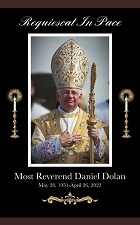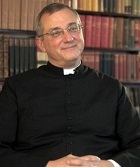Головна » 2021 Август 19 » St. Hyacinth the Apostle of Poland and South Russia
15:53 St. Hyacinth the Apostle of Poland and South Russia |
|
St. Hyacinth the Apostle of Poland and South Russia
Poles love their native land, but the Faith, souls and our heavenly homeland more. Today is St Hyacinth, Dominican apostle to tens of thousands in Scandinavia, Scotland, Russia, Greece Ukraine... Also birthday of the great King Jan Sobieski who saved Europe from the Crescent.
Source: Twitter: Bp. Daniel Dolan THE BOOK OF SAINTS: Based on the example of the life and apostolic activity of St. Hyacinth, at least four conclusions can be drawn:
*Not all of them |
| Категорія: Articles in English | Переглядів: 563 | Додав: |


